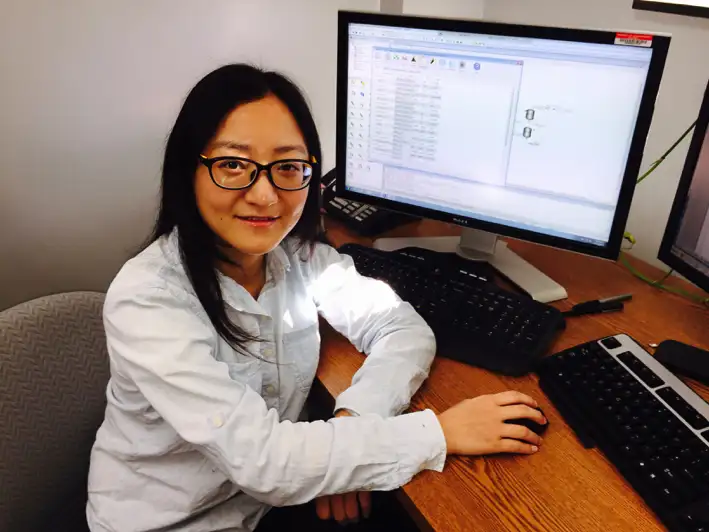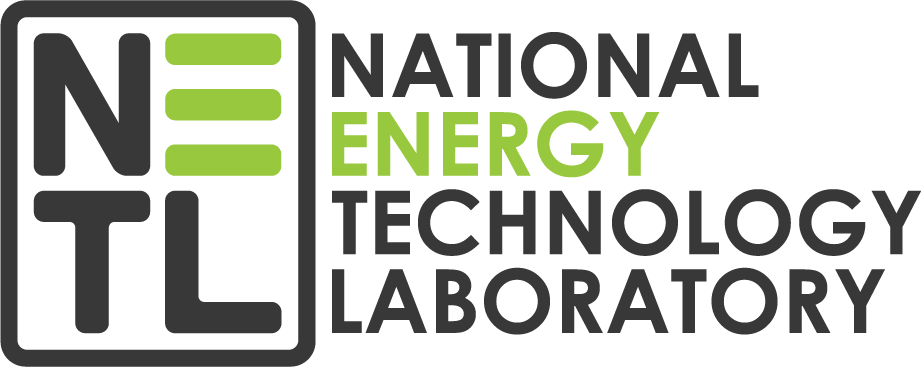Chemical Engineer Helps Improve Carbon Capture Technology
Meet Qianwen Gao
Qianwen Gao, a graduate of Carnegie Mellon University with a master’s degree in chemical engineering, believes engineers play a vital role in improving the world we live in. As a research participant at the National Energy Technology Laboratory in Pittsburgh, PA, she’s using her love of problem-solving to do just that.

Entry-level chemical engineer Qianwen Gao’s research, as part of the Postgraduate Research Program at NETL, is helping scientists and engineers advance carbon capture technologies across the country.
“Carbon dioxide emissions are a main factor in causing climate change, which negatively affects society and the world’s ecosystem in a variety of ways,” says Gao, a participant in the NETL Postgraduate Research Program administered by the Oak Ridge Institute for Science and Education. “Our research is dedicated to providing cost-effective solutions to reduce carbon dioxide emissions from existing fossil-fueled power plants, which are the largest source of carbon dioxide emissions in the U.S.”
At NETL, Gao is part of a team led by Dr. David Miller under the Carbon Capture Simulation Initiative (CCSI) that is studying the post-combustion carbon capture process—at the end of the power generation process—as opposed to pre-combustion, which occurs at the beginning of the power generation process. CCSI aims to develop computational tools that accelerate the development of cost-effective carbon capture technology for its commercialization and widespread application in power plants nationwide.
Specifically, Gao is investigating the use of amine-based solid sorbent materials, or materials that adsorb liquids or gases, to separate carbon dioxide from the flue gas (exhaust). Scientists have been studying amines in both liquid solutions as well as attached to solids for their ability to capture carbon dioxide from flue gas and release it again at high temperatures.
“The program provides a chance to strengthen and acquire knowledge as well as improve communication, presentation and problem-solving skills,” she said. “It could be a good transition to either an advanced degree or employment in interested fields.”
Gao uses solid sorbent computational models developed under CCSI to help determine a set of target properties for the sorbent, based on what scientists already know about amine-based sorbent chemistry. For example, they know that carbon dioxide adsorption on an amine-based solid sorbent consists of three reactions.
“The interactions of the reactions require a balance to achieve the maximum sorbent working capacity,” explained Gao. “Our team has proposed an optimization approach allowing reactivity parameters to vary simultaneously with design and operating variables.”
The team’s preliminary results indicate that their optimization approach can reduce the cost for carbon capture from a coal-fired power plant by approximately $10 per megawatt hour of electricity. Reducing the costs of carbon capture are important for its widespread deployment.
“With collaboration from all researchers working in the carbon capture field, the impacts brought by climate change will be relieved,” said Gao. “This enables us and future generations to live in a safer and cleaner environment.”
In October 2015, Gao presented her research alongside her mentor at the International Pittsburgh Coal Conference. It is this kind of collaboration and opportunity for skill-building that Gao finds so rewarding about the Postgraduate Research Program.
“I am researching in a group with a highly perceived concept of team work. This enables me to practice giving group presentations regularly, which I feel adequately prepared me for the coal conference,” said Gao. “Also, group members work closely to discuss ideas, specialize in certain tasks and handle continuous feedback. Engaging with these activities strengthen my skills in reporting, channeling information and thinking from different perspectives.”
Gao believes the Postgraduate Research Program has given her one foot in the door to a career in industry and encourages others to apply to the program, as well.
“The program provides a chance to strengthen and acquire knowledge as well as improve communication, presentation and problem-solving skills,” she said. “It could be a good transition to either an advanced degree or employment in interested fields.”


